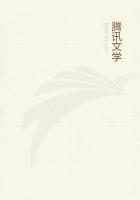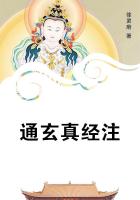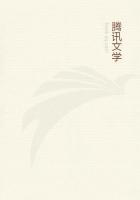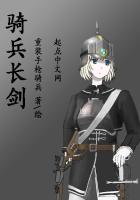"But tell me, Brother John," said little Otto, in a hushed voice, "what else did the good Angel say to thee?"
Brother John stopped short in his song and began looking from right to left, and up and down, as though to gather his wits.
"So!" said he, "there was something else that he told me. Tschk!
If I could but think now. Yes, good! This is it - 'Nothing that has lived,' said he, 'shall ever die, and nothing that has died shall ever live.'
Otto drew a deep breath. "I would that I might see the beautiful Angel Gabriel sometime," said he; but Brother John was singing again and did not seem to hear what he said.
Next to Brother John, the nearest one to the little child was the good Abbot Otto, for though he had never seen wonderful things with the eyes of his soul, such as Brother John's had beheld, and so could not tell of them, he was yet able to give little Otto another pleasure that no one else could give.
He was a great lover of books, the old Abbot, and had under lock and key wonderful and beautiful volumes, bound in hog-skin and metal, and with covers inlaid with carved ivory, or studded with precious stones. But within these covers, beautiful as they were, lay the real wonder of the books, like the soul in the body; for there, beside the black letters and initials, gay with red and blue and gold, were beautiful pictures painted upon the creamy parchment. Saints and Angels, the Blessed Virgin with the golden oriole about her head, good St. Joseph, the three Kings; the ****** Shepherds kneeling in the fields, while Angels with glories about their brow called to the poor Peasants from the blue sky above. But, most beautiful of all was the picture of the Christ Child lying in the manger, with the mild-eyed Kine gazing at him.
Sometimes the old Abbot would unlock the iron-bound chest where these treasures lay hidden, and carefully and lovingly brushing the few grains of dust from them, would lay them upon the table beside the oriel window in front of his little namesake, allowing the little boy ******* to turn the leaves as he chose.
Always it was one picture that little Otto sought; the Christ Child in the manger, with the Virgin, St. Joseph, the Shepherds, and the Kine. And as he would hang breathlessly gazing and gazing upon it, the old Abbot would sit watching him with a faint, half-sad smile flickering around his thin lips and his pale, narrow face.
It was a pleasant, peaceful life, but by-and-by the end came.
Otto was now nearly twelve years old.
One bright, clear day, near the hour of noon, little Otto heard the porter's bell sounding below in the court-yard - dong! dong!
Brother Emmanuel had been appointed as the boy's instructor, and just then Otto was conning his lessons in the good monk's cell.
Nevertheless, at the sound of the bell he pricked up his ears and listened, for a visitor was a strange matter in that out-of-the-way place, and he wondered who it could be. So, while his wits wandered his lessons lagged.
"Postera Phoeba lustrabat lampade terras," continued Brother Emmanuel, inexorably running his horny finger-nail beneath the line, "humentemque Aurora polo dimoverat umbram -" the lesson dragged along.
Just then a sandaled footstep sounded without, in the stone corridor, and a light tap fell upon Brother Emmanuel's door. It was Brother Ignatius, and the Abbot wished little Otto to come to the refectory.
As they crossed the court-yard Otto stared to see a group of mail-clad men-at-arms, some sitting upon their horses, some standing by the saddle-bow. "Yonder is the young baron," he heard one of them say in a gruff voice, and thereupon all turned and stared at him.

